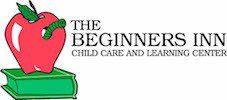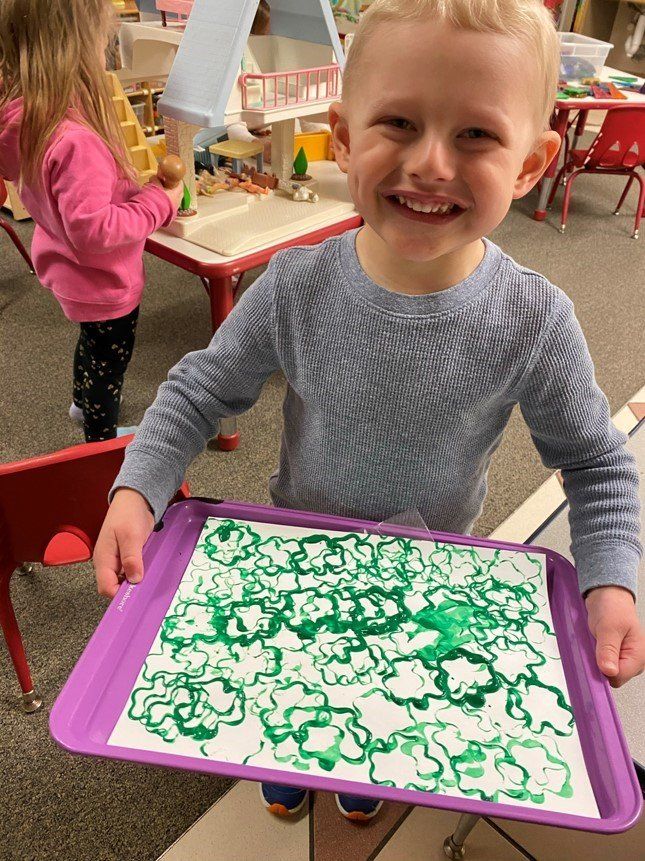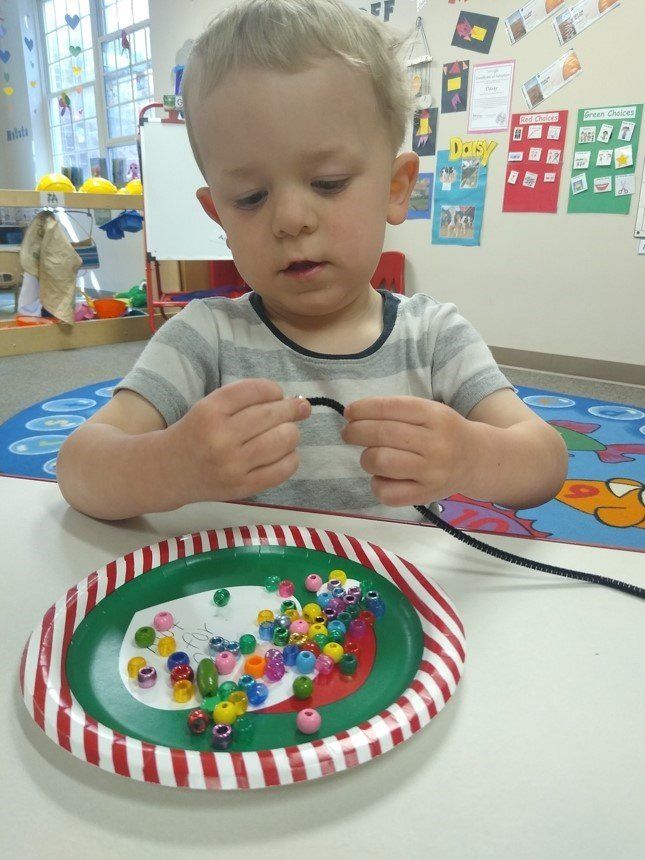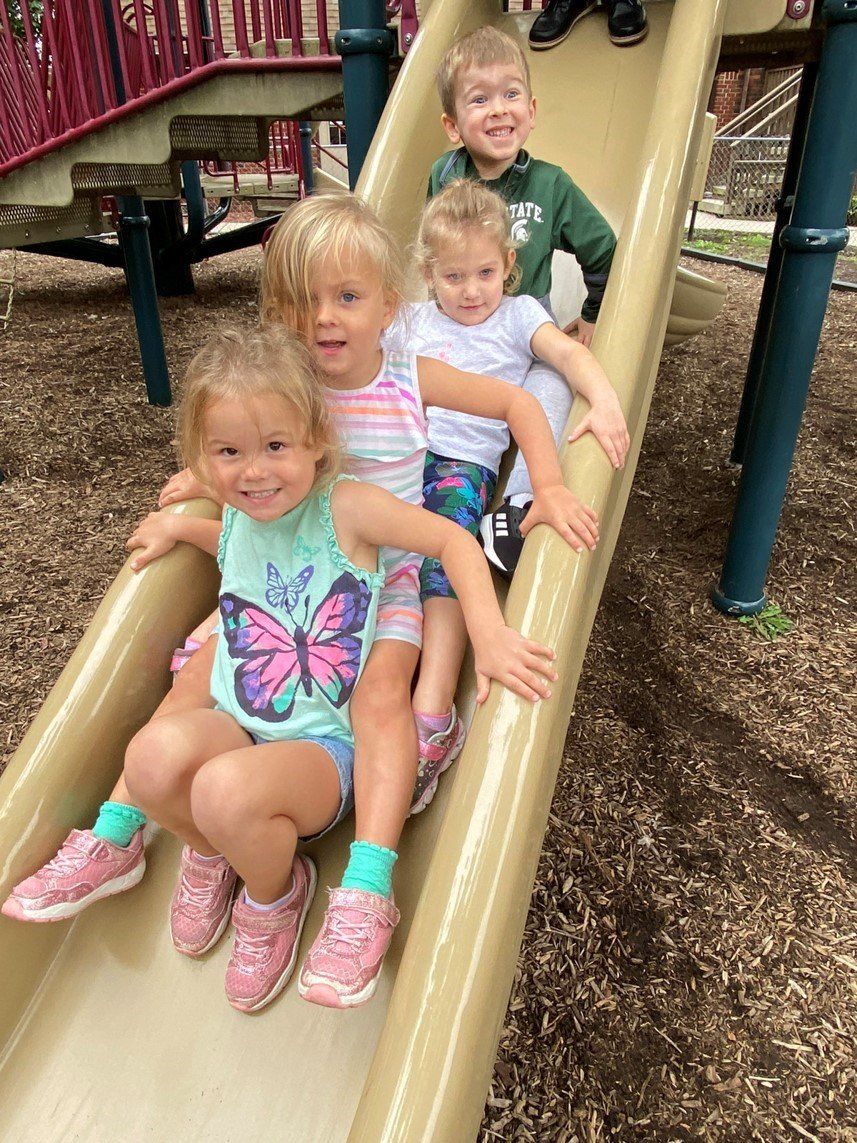Infant Care
in Canton, MI
The Creative Curriculum helps plan and implement a developmentally appropriate program that promotes children’s social-emotional development and learning in the core areas of literacy, mathematics, science, and social studies. The Creative Curriculum is an early childhood curriculum designed to foster the development of the whole child. The curriculum provides information on child development, working with families, and organizing the classroom. Child assessments are part of the curriculum, and it provides record-keeping tools to assist teachers with the maintenance and organization of child portfolios, and individualized planning.
Assessments
Child assessments are an ongoing part of the curriculum and are completed for each child (Infants to Young 5’s) at the beginning of the new session in the fall, half way through during the winter and at the end of the session in the spring. Assessments are used to identify the child’s strengths and weaknesses. Each child develops at their own rate therefore, the assessments help the teacher provide lesson plans based on where the child’s needs are.
Family Conferences
Family Conferences are held twice during the school year session. After the children have adjusted to their classrooms our teachers will begin assessing the children in their class. Once they are completed, a plan is created based on the findings of the assessment. We provide our families with the opportunity to discuss the plan for the year, ask specific questions, raise any concerns, and celebrate the child’s progress to date. During the school year, once the plan is in place, the teacher will continue to assess the children and meet again with the family in the spring about the progress the child has made.
Should there be a need for more discussion at any time during enrollment, Beginners Inn is always able to accommodate to our families.
Portfolios
An assessment portfolio will contain work a child has completed during their entire time of enrollment at Beginners Inn. The portfolio will include artwork the child has created, pictures taken of the child during school hours, and notes from the teacher.
Areas documented in the portfolio will include fine and gross motor skills, social and emotional development, cognitive development, and language and literacy skills. The child’s assessments will also be kept with the portfolio. Samples of work that have been gathered will be organized and maintained until the child moves onto Kindergarten.







